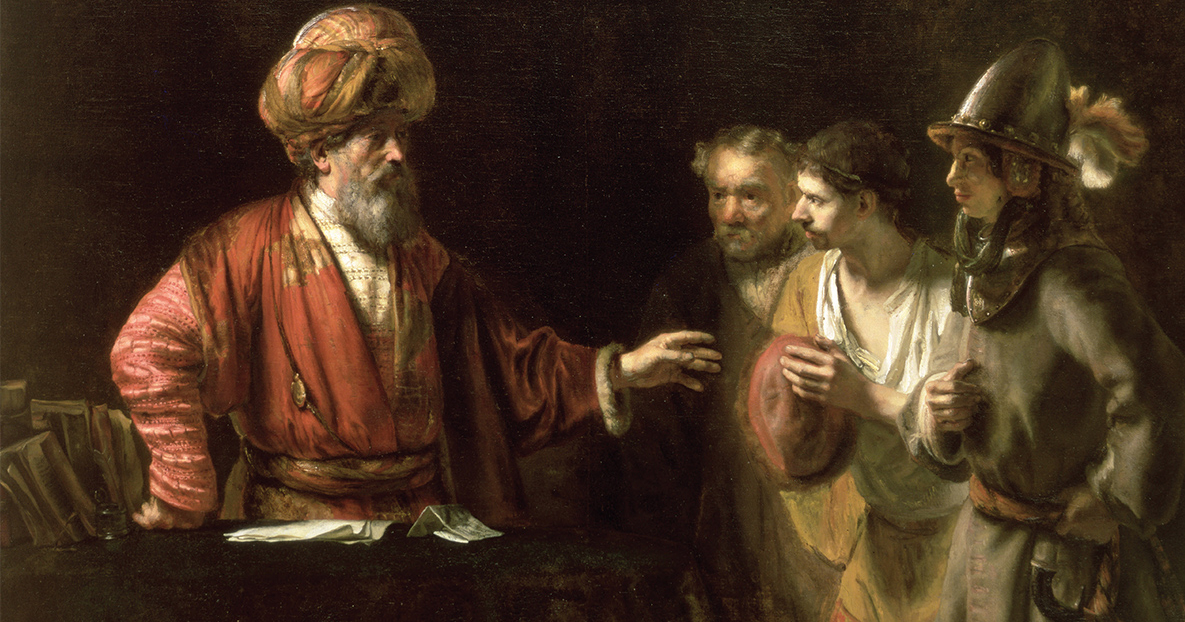

So the Lord here is telling us that if we are in a worldly state and want to become more spiritual, we need to collect true ideas from the world around us – even an evil world – and make use of them.īut we do have to be careful.

Which, again, is something the steward and the debtors did for each other. To “make friends” with it is to learn what these people know without embracing their evil.

They shared external things, to the benefit of both.Īnd what of “making friends with unrighteous mammon”? “Unrighteous mammon,” according to Swedenborg, is knowledge possessed by evil people. That’s what the steward got from the debtors, and what the debtors got from the steward. That brings us to the mysterious line, “the sons of this world are more shrewd in their generation than the sons of light.” This, according to Swedenborg, means that if we are in external states (“this generation”) – which the steward was, and the debtors were – the most effective tool for us is going to be external thought and knowledge (“sons of this world”). Despite his limits, he found a way to be useful – and in doing so made a move toward improving his own spiritual state. This explains why the steward was praised. Pressured into the Bible study, he starts confirming some of the knowledge he has and applying it to life – akin to the debtors “writing” down lesser amounts, which represents confirming themselves in intermediate spiritual states. Your friend, meanwhile, is a debtor – someone with a collection of knowledge from others, but not confirmed as part of life. You can see that he is wasting your goods – the church’s ideas are hampering your ability to live the best life you can. The church is the steward, who represents external ideas about religion, based in truth but not necessarily filled with a desire for good. In this example, “you” are the rich man, with a wealth of spiritual knowledge which you’ve confirmed in your life. That, in essence, is the parable of the unjust steward. I mean, I knew all the stories, but now I’m seeing ways I can apply it to my life.” So I went, and you know, I’m seeing things in the Bible I never saw before. But I really couldn’t argue with the fact that it is the Sabbath. I always figured that I knew all the stories, and I was busy, I was tired, all that stuff. But for me, I’d never gone to a Bible study before. “I hear what you’re saying,” he says, “and I might be right with you someday. You tell this to a friend, and his reaction is unexpected. Finally you tell the pastor that the reaction is hurtful and unwarranted, and you might decide to seek another church. The pastor keeps calling to remind you of the study nights, and you keep catching snide remarks from other members. You and your wife talk about it, and decide to keep your family tradition instead. What’s more, Sunday is the one day all your children are home, and you have a tradition of Sunday dinners that tend to evolve into long, rich conversations. You and your wife read and study the Bible together you’ve taken part in some other Bible studies, but don’t like feeling coerced.

He also encourages participants to buy a study guide which he wrote and the church is selling. The pastor notes that this is part of the Sabbath, and there should be no excuses. Let’s say your church decides to start a Sunday night Bible study. Understood on an internal level – through Swedenborg – the story makes much more sense. Huh? Didn’t he just tell us to serve mammon? Jesus then proceeds to say that worldly men are wiser than enlightened, angelic ones, and advises us to embrace ill-gotten wealth – and then, in a seeming contradiction, tells us we cannot serve both God and mammon.


 0 kommentar(er)
0 kommentar(er)
